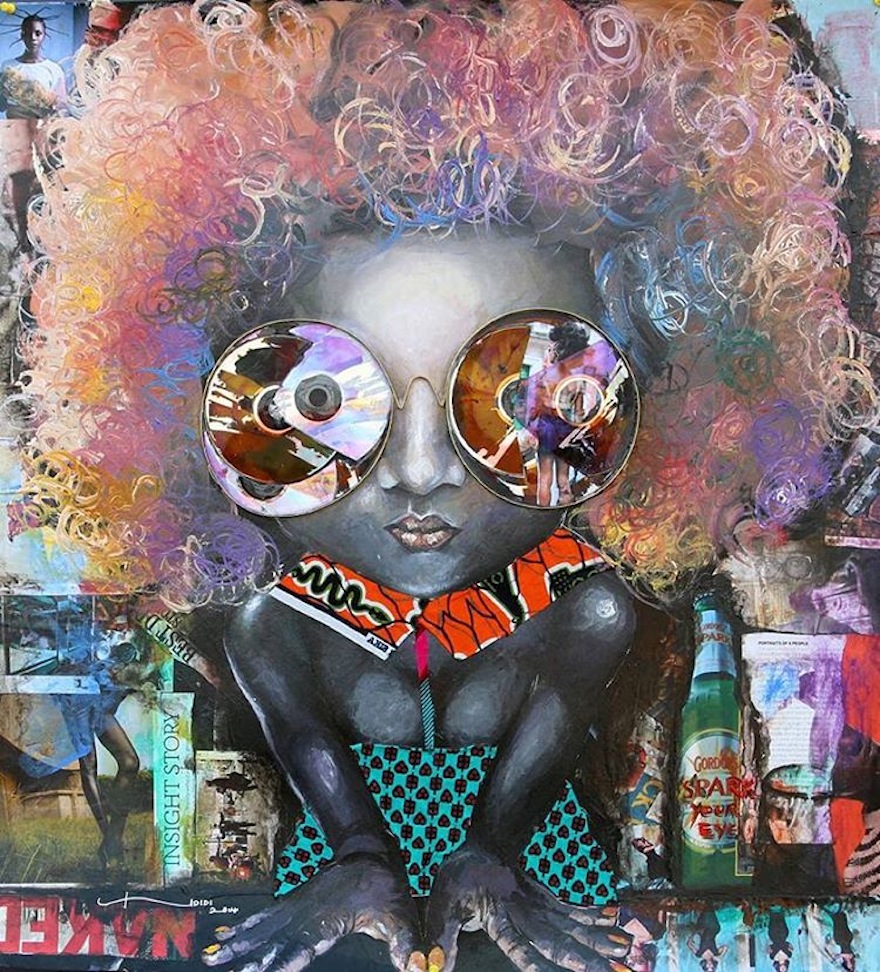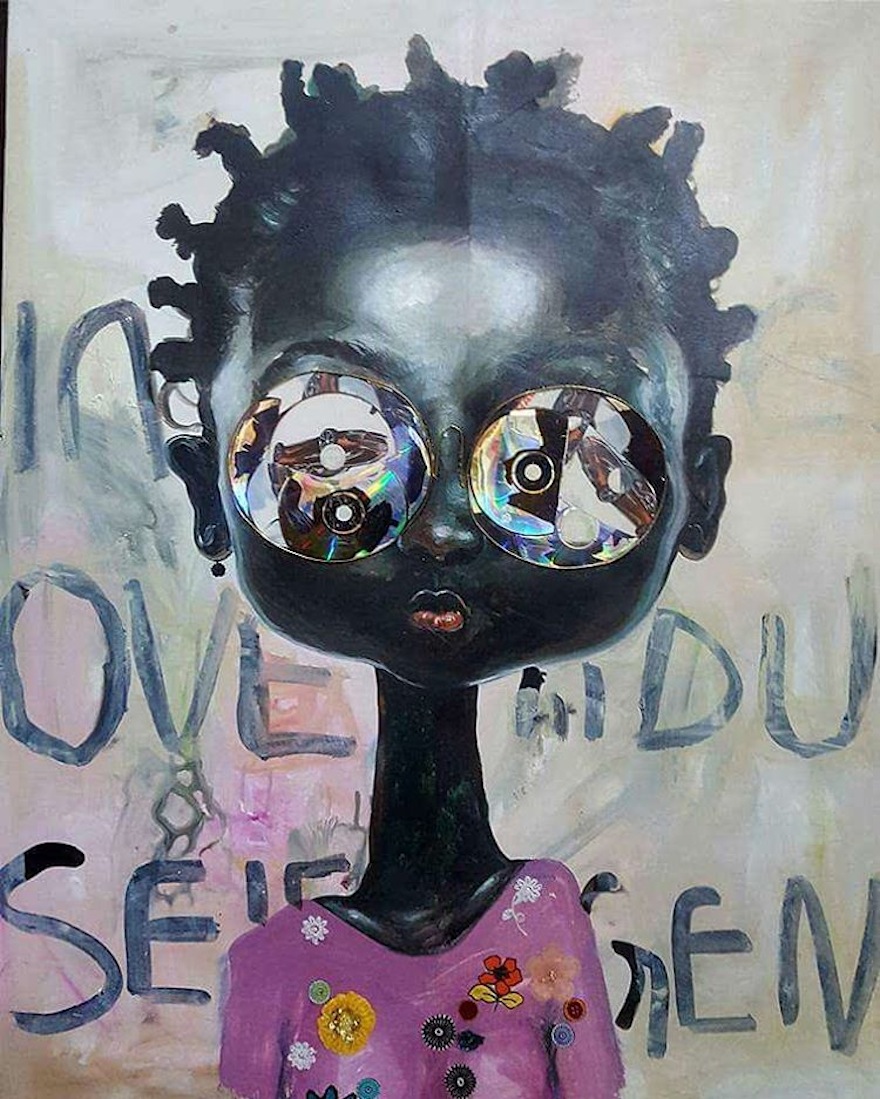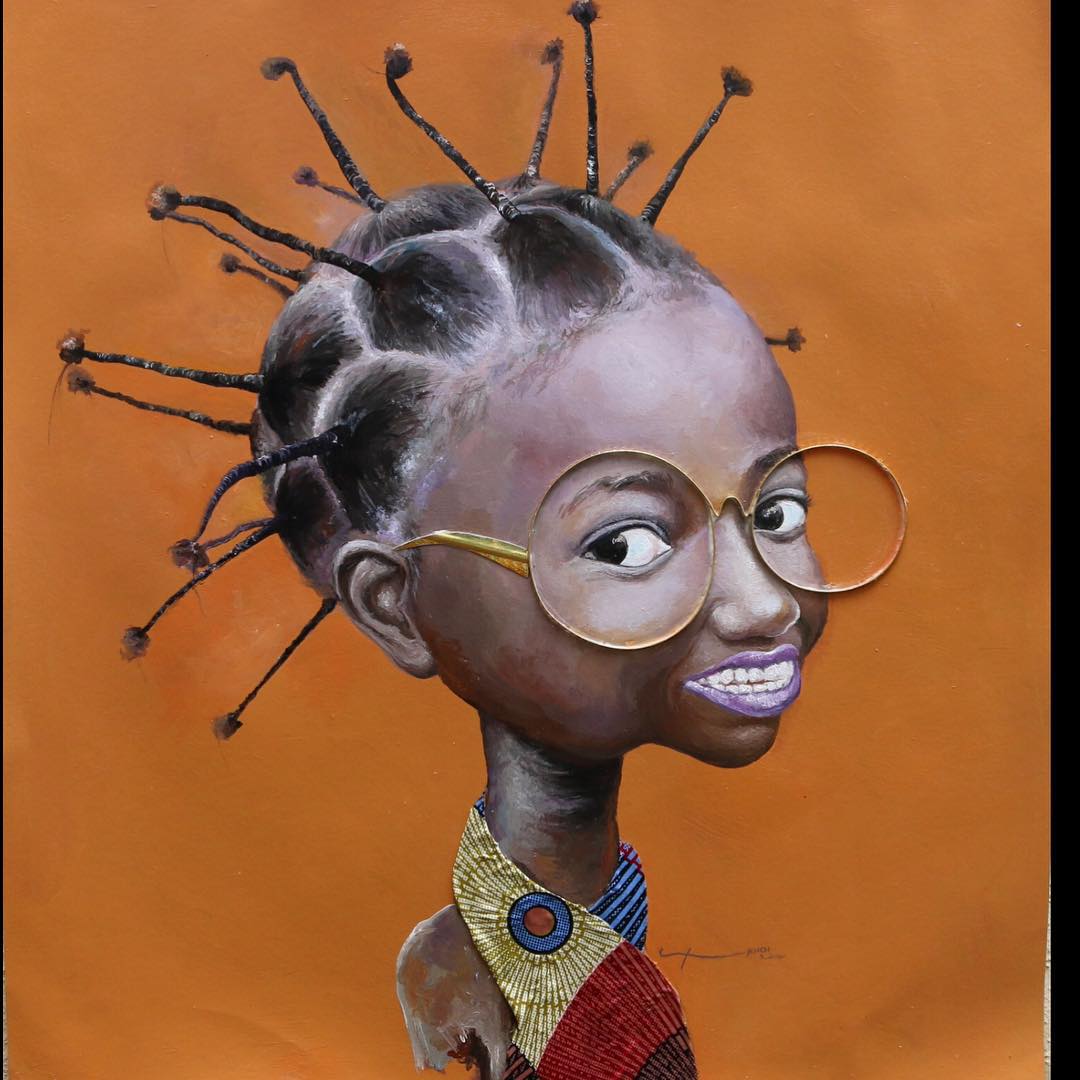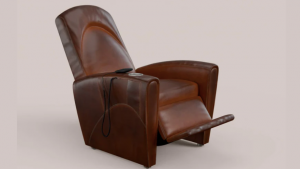
From Northern Nigeria, Ndidikanma “Ndidi” Emefiele is a multimedia artist whose portraits of black women with larger than life heads have charmed art lovers around the world. Her signature style – which is typically characterised by oversized female heads donning natural hair and enormous eyewear – is embodied in her ongoing series, Rainbow.
While she began her artistic career painting landscapes – influenced by an early exposure to impressionistic works in art books – the subject of black womanhood quickly became her focus. Intrigued by the roles of culture, family, tradition and how expectations of gender can shape the identity of a person, Emefiele began to incorporate these ponderings into her art.
A reaction to the perceived contradictions that pepper societal expectations of women, particularly in Emefiele’s home country of Nigeria, her Rainbow series utilises discarded materials including CD’s, clock bezels, textiles, wires, and pearls. Lending her pieces a physicality and tactile quality, these found objects also represent Emefiele’s break from the more traditional artistic practices she was taught in university.

In an interview with Okay Africa, the artist explained the significance of her the Rainbow series.
“The exaggerated heads are symbolic, particularly in the western part of Nigeria, where sculptural heads are depicted larger than they appear and embedded with cultural meanings. The head is called the “Ori” and it is considered the most important part of the body, regarded as the ‘locus of the ase of olodumare‘. The head is said to control a person’s destiny.”
“The glasses are my strategy to give the female some form of protection. It is that curtain, a veil, a mask behind which she masters the art of mobility, she is learning to work the alchemy of dissolving the hard conditions in which she finds herself. They have become a mark of identity, but also an element of style.”
You can see more of Emefiele’s remarkable work here.

More on art and photography:
Joshua Kissi on disrupting and diversifying stock photography
Myles Loftin on the importance of representing black masculinity differently
Thandiwe Msebenzi uses photography to expose the consequences of misogyny






